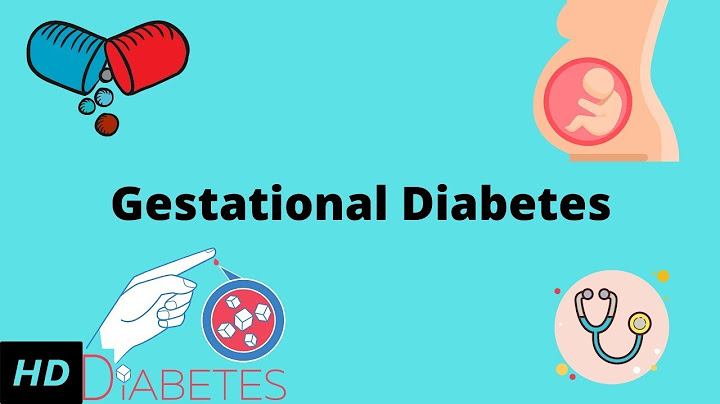With type 2 diabetes, the more common type, your body does not make or use insulin well. Insulin is a hormone that helps glucose get into your cells to give them energy. Without insulin, too much glucose stays in your blood. Over time, high blood glucose can lead to serious problems with your heart, eyes, kidneys, nerves, and gums and teeth. Show
Guidelines for Using ICD-10 Codes for DiabetesAs many ICD-10 codes as necessary can be used together to describe the patient’s form of diabetes. Pregnant women who are diabetic should be assigned a code from the 024 categories first, followed by the appropriate diabetes codes in the E08 to E13 range. For gestational diabetes (diabetes that occurs during pregnancy) women should be assigned a code under the 024.4 subheading and not any other codes under the 024 category. If the type of diabetes that the patient has is not documented in the medical record, E11 codes for type 2 diabetes should be used as a default. If the medical record doesn’t say what type of diabetes the patient has but indicates that the patient uses insulin, the Type 2 diabetes codes should also be used. The code for long-term use of insulin, Z79.4, should also be used in these cases (unless insulin was just given to the patient as a one-time fix to bring blood sugar under control). Note that the word “with” in the code titles always means “associated with” or “due to” (it doesn’t refer to two disparate conditions). The “unspecified” codes can be used when not enough information is known to give a more specific diagnosis; in that case, “unspecified” is technically more accurate than a more specific but as yet unconfirmed diagnosis. ICD Code E11 is a non-billable code. To code a diagnosis of this type, you must use one of the eight child codes of E11 that describes the diagnosis ‘type 2 diabetes mellitus’ in more detail. E11.0 Type 2 diabetes mellitus with hyperosmolarity
E11.2 Type 2 diabetes mellitus with kidney complications
E11.3 Type 2 diabetes mellitus with ophthalmic complications
E11.4 Type 2 diabetes mellitus with neurological complications
E11.5 Type 2 diabetes mellitus with circulatory complications
E11.6 Type 2 diabetes mellitus with other specified complications
E11.8 Type 2 diabetes mellitus with unspecified complicationsE11.9 Type 2 diabetes mellitus without complicationsHyperosmolar Hyperglycemic State (HHS)Hyperosmolar hyperglycemic state (HHS) is a complication of diabetes mellitus (predominantly type 2) in which high blood sugars cause severe dehydration, increases in osmolarity (relative concentration of solute) and a high risk of complications, coma, and death. It is diagnosed with blood tests. It is related to diabetic ketoacidosis (DKA), another complication of diabetes more often (but not exclusively) encountered in people with type 1 diabetes; they are differentiated with measurement of ketone bodies, organic molecules that are the underlying driver for DKA but are usually not detectable in HHS. Coding for Diabetes Mellitus in ICD 10 is a challenging task and you need a certified coder who is must have experience in Diabetes coding to choosing the correct CPT and ICD codes. Hiring such an expert can add a big overhead cost to your practice. To avoid this, you can take assistance from medical billing company like Medical Billers and Coders (MBC) who has such experts. With our assistance, you don’t have to worry about using exact Diabetes Mellitus codes. To know more about our Diabetes Mellitus coding services you can contact us at 888-357-3226/ Reference:ICD-10-CM Code E11 What is the ICDICD-10 code E11. 69 for Type 2 diabetes mellitus with other specified complication is a medical classification as listed by WHO under the range - Endocrine, nutritional and metabolic diseases .
What is ICDICD-Code E11* is a non-billable ICD-10 code used for healthcare diagnosis reimbursement of Type 2 Diabetes Mellitus. Its corresponding ICD-9 code is 250. Code I10 is the diagnosis code used for Type 2 Diabetes Mellitus.
What is diagnosis code E11 59?E11. 59 Type 2 diabetes mellitus with oth circulatory complications - ICD-10-CM Diagnosis Codes.
What does ICDICD-10 code E11. 65 represents the appropriate diagnosis code for uncontrolled type 2 diabetes without complications.
|

Related Posts
Advertising
LATEST NEWS
Advertising
Populer
Advertising
About

Copyright © 2024 nguoilontuoi Inc.


















